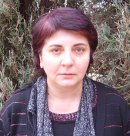|
Plenary Lecture
Assessment and Modeling of Embodied Energy in Electric Transportation
Systems, a Battlefield of Environmental Education

Professor Cornelia Aida Bulucea
Electrical Machines and Environmental Engineering Department
Faculty of Electromechanical and Environmental Engineering
University of Craiova
ROMANIA
E-mail: abulucea@gmail.com
Abstract: Traditionally considered, the basic concepts of energy,
exergy and embodied energy are founded in the field of physics, having
however environmental, technical and economical significance as well, and
could be explained, interpreted and applied in a more universal manner, due
to their multidisciplinary traits. It means that in Science unclarified,
unindexed and unassimilated worlds are unifying and harmonizing, without
contradictory frontiers between microscopic and macroscopic phenomena. If we
really want to avoid the concept of „on the edge of chaos” then a set of
conditions for performance of sustainable technical systems must be
formulated. Hence, this study aims to demonstrate, in terms of
sustainability, the usefulness of the embodied energy and exergy concepts
for analyzing systems which convert energy or matter, particularly, an
electric transportation system in a dualist view, technical and
environmental.
It is argued in the study the sustainability framework, which revealed
tentative steps in „cradle to grave” embodied energy assessment of an
electric train, from the manufacturing processes to the train operation
regimes modeling. In particular, this study tries to provide a missing link
in the analysis of electric transportation systems, a bond between
Environment and Science that could be translated into the paradigm: only the
win model of the self-organizing systems of Nature as solution for human
technology applied will have survival value.
The understanding of the Universe Creation and Revival will be probably out
of reach. We will never know actually when and how was exergy created and
transformed into life-supporting light in our Sun. But whatever it was, we
should take care of our gift-given home, the Earth. All humans who are
considering that the Universe is, in a tragic way, transient and imperfect
should think to the fragile and running moments of our happiness and try to
accept the right of survival for the living Nature. Looking forward, the
environmental education should lead to decisive changes in our lifestyle, if
we really want the human society to be a true part of the living Nature.
Otherwise, if Science will be not directed towards the right purposes of the
humanity, sooner or later everything will be passed, and forgotten, and
erased.
Brief biography of the speaker:
Cornelia Aida Bulucea is currently an Associate Professor in Electrotechnics,
Electrical Machines and Environment Electrical Equipments in the Faculty of
Electromechanical and Environmental Engineering, University of Craiova,
Romania. She is graduate from the Faculty of Electrical Engineering Craiova
and she received the Ph.D degree from Bucharest Polytechnic Institute. In
Publishing House she is author of four books in electrical engineering area.
Research work is focused on improved solutions for electrical networks on
basis of new electric equipments and environmental impact of energy and
electric transportation systems. She has extensive experience in both
experimental and theoretical research work, certified by over 50 journal and
conference research papers and 13 research projects from industry. She has
held in the Association for Environment Protection OLTENIA and she is a
regular invited keynote lecture for environmental engineering symposia
organized by Chamber of Commerce and Industry OLTENIA. Due to WSEAS
recognition as huge scientific Forum she participated in five WSEAS
International Conferences, presenting papers and chairing sessions. She was
Plenary Lecturer in the WSEAS International Conference on POWER SYSTEMS,
held by the University of Cantabria, Santander, Spain, September 23-25,
2008. She is very proud of her 10 papers published in the WSEAS Conferences
Books and 3 papers published in WSEAS TRANSACTIONS ON ENVIRONMENT AND
DEVELOPMENT, and in WSEAS TRANSACTIONS ON ADVANCES IN ENGINEERING EDUCATION.
| 